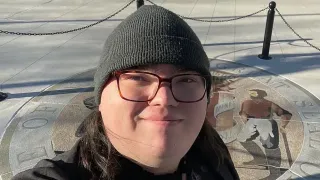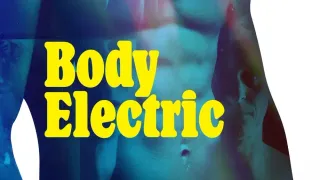June 12, 2015
Live From New York!
Kilian Melloy READ TIME: 3 MIN.
The Bao Nguyen-directed documentary "Live From New York!" celebrates forty years of "Saturday Night Live," and boasts a Who's Who of cast alumni, hosts, commentators, and crew. You'd expect that from any film celebrating such a milestone, but Nguyen's documentary goes one better in allowing the interviewees to speak frankly about their impressions and experiences.
SNL has, of course, had its ups and downs -- its dry seasons, its brilliant performers, its controversial moments, and its iconic sketches. There's so much to love about the show (especially its first five years) that it's impossible to stuff everything in -- and that shouldn't be the way to go anyway, because then "Live From New York!" would be nothing more than a clips show, and you can get those on existing home releases (many of the DVD sets are themed according to performer).
Instead, this is something of a critical cultural analysis: What has SNL been and meant in American culture? It's a mirror, of course, but the program was always intended to be more. From its conception -- as we learn here -- SNL was envisioned as "a cross between Monty Python and '60 Minutes,'" and in the course of fulfilling that vision SNL hasn't just reflected American life, but has also, to an extent, shaped it.
The formula Nguyen relies on isn't simply to illustrate the show's successes with beloved clips (there's no "Land Shark" here, and no John Belushi imitating Captain Kirk) but instead to hold up the show's moments of truth -- the moments that defined SNL and galvanized the public. The film revisits the Andrew Dice Clay brouhaha; the clip of Sinead O'Connor ripping up a photo of Pope John Paul II is included; so is the infamous riff involving the topic of slavery that African-American staff writer Leslie Jones unleashed during her inaugural appearance last year.
According to news reports at the time, Jones was brought into the show's writer's room after being critiqued for lacking diversity. That's a subject former cast members discuss with candor, including original cast member Garrett Morris, who was not given as much to do as his white cast mates, or so we are told. The issue of the show being a "boy's club" is also debated, but what's pointed out, too, is how creator Lorne Michaels was always a supporter of women's comedy.
The show's take on American politics across the decades is a rich vein of conversational material, with much of the focus there going to the Bush v. Gore election of 2000 and the GOP team of McCain and Palin from 2008. But if the show's comic peaks and valleys have been erratic, SNL has also been a stalwart during times of crisis -- never more so than just after 9/11. In a deftly assembled sequence, Nguyen recalls just how important the healing balm of humor was for a stunned and grieving nation in the weeks following the terrorist attacks that struck New York and Washington, D.C.
As times have changed and society evolved, so has "Saturday Night Live," spawning viral videos like "Lazy Sunday" and "Dick in a Box." SNL has been very much a part of its times for more than a generation. But it's also retained the timeless magic of its medium's earliest days by being broadcast live -- a situation in which anything might happen (often with the cunning cast members planning just how to exploit their live-on-the-air status).
And it's not just an "anything might happen" vibe that gives SNL its live TV energy; it's also the coordinated hustle that makes it possible for the show to be put together and broadcast practically on the fly. Watching this doc, you get a dose of the back-stage adrenaline. As one commentator notes, "We don't go on because we're ready, we go on because it's 11:30." That's the essence of live TV. There are murmurs here of SNL having lost its edge, and it's true that there have been periods of stagnation in that long four-decade run, but that essential, transgressive aura remains bright and intact.







